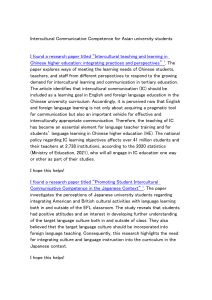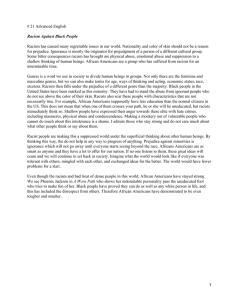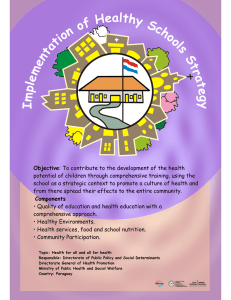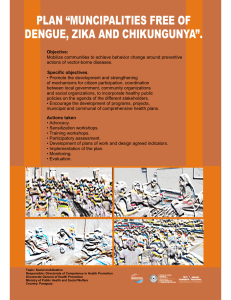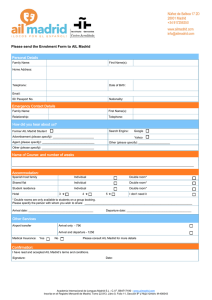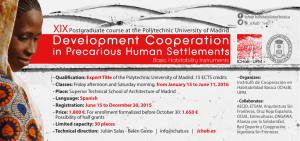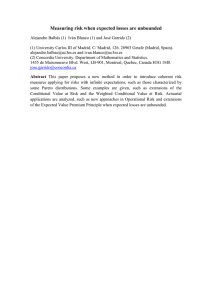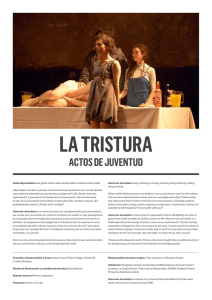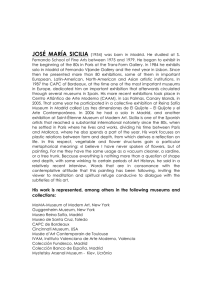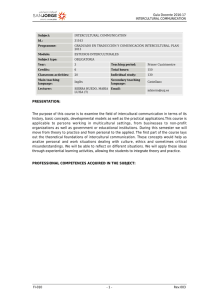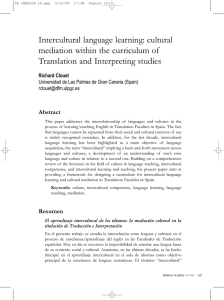Where do we go from here? - European Youth Centre Budapest
Anuncio
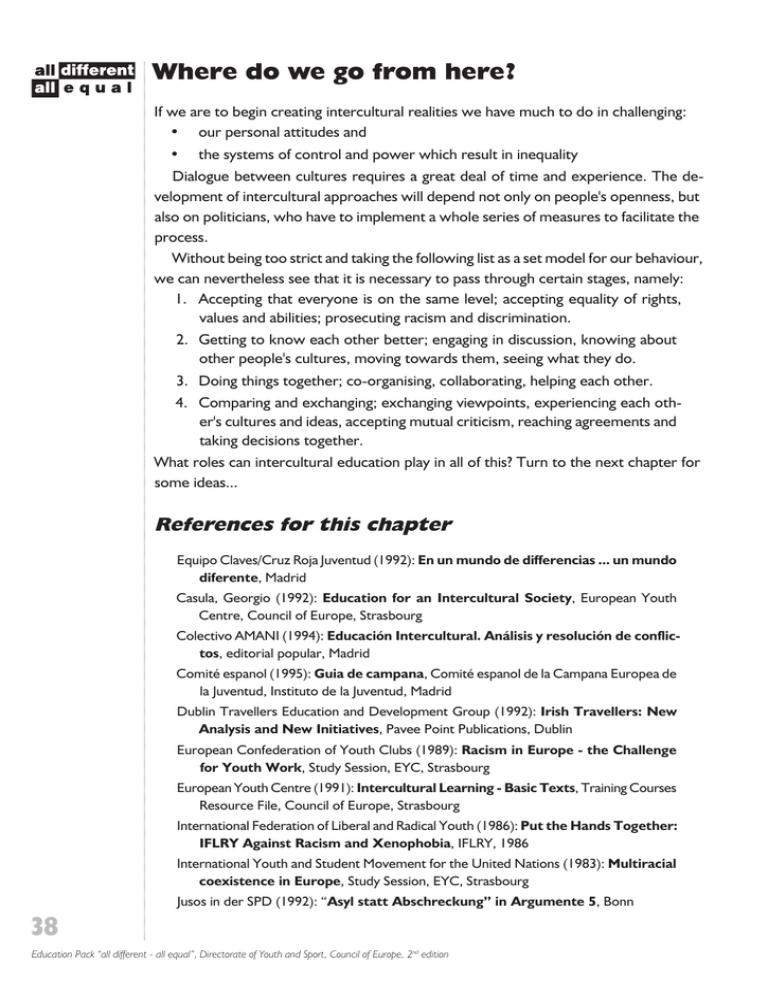
Where do we go from here? If we are to begin creating intercultural realities we have much to do in challenging: • our personal attitudes and • the systems of control and power which result in inequality Dialogue between cultures requires a great deal of time and experience. The development of intercultural approaches will depend not only on people's openness, but also on politicians, who have to implement a whole series of measures to facilitate the process. Without being too strict and taking the following list as a set model for our behaviour, we can nevertheless see that it is necessary to pass through certain stages, namely: 1. Accepting that everyone is on the same level; accepting equality of rights, values and abilities; prosecuting racism and discrimination. 2. Getting to know each other better; engaging in discussion, knowing about other people's cultures, moving towards them, seeing what they do. 3. Doing things together; co-organising, collaborating, helping each other. 4. Comparing and exchanging; exchanging viewpoints, experiencing each other's cultures and ideas, accepting mutual criticism, reaching agreements and taking decisions together. What roles can intercultural education play in all of this? Turn to the next chapter for some ideas... References for this chapter Equipo Claves/Cruz Roja Juventud (1992): En un mundo de differencias ... un mundo diferente, Madrid Casula, Georgio (1992): Education for an Intercultural Society, European Youth Centre, Council of Europe, Strasbourg Colectivo AMANI (1994): Educación Intercultural. Análisis y resolución de conflictos, editorial popular, Madrid Comité espanol (1995): Guia de campana, Comité espanol de la Campana Europea de la Juventud, Instituto de la Juventud, Madrid Dublin Travellers Education and Development Group (1992): Irish Travellers: New Analysis and New Initiatives, Pavee Point Publications, Dublin European Confederation of Youth Clubs (1989): Racism in Europe - the Challenge for Youth Work, Study Session, EYC, Strasbourg European Youth Centre (1991): Intercultural Learning - Basic Texts, Training Courses Resource File, Council of Europe, Strasbourg International Federation of Liberal and Radical Youth (1986): Put the Hands Together: IFLRY Against Racism and Xenophobia, IFLRY, 1986 International Youth and Student Movement for the United Nations (1983): Multiracial coexistence in Europe, Study Session, EYC, Strasbourg Jusos in der SPD (1992): “Asyl statt Abschreckung” in Argumente 5, Bonn 38 Education Pack “all different - all equal”, Directorate of Youth and Sport, Council of Europe, 2nd edition Liégeois, Jean-Pierre (1994): Roma, Gypsies, Travellers, Council of Europe, Strasbourg Shafir, Michael (December 1989): “Xenophobic Communism - The Case of Bulgaria and Romania” in The World Today, The Royal Institute of International Affairs, London Siang Be (May 1994): ‘Überwindung’ / ‘Abbau’ von Vorurteilen/Stereotypen durch politische Bildung?, Manuscript, Internationale Begegnungsstätte Jagdschloß Glienicke, Berlin Taylor, Mark (1993): ALIEN 93 Youth Organisations Combatting Racism and Xenophobia, Youth Directorate, Council of Europe, Strasbourg Van der Gaag, Nikki and Gerlach, Lynne (1985): Profile on Prejudice, Minority Rights Group, London 39 Education Pack “all different - all equal”, Directorate of Youth and Sport, Council of Europe, 2nd edition

